
OUR HOUSE Grief Support Center: Where Grief is Embraced, Understood, and Respected
OUR HOUSE Grief Support Center can’t bring parents and other loved ones back to life. What this center can do is support those dealing with loss, for example, children. Children in particular need help with bereavement: losing a parent means losing the center of their lives. They need a place where it’s safe to talk, and where there are others like them, going through this surreal and at times unbearable experience.
OUR HOUSE, our latest small grant recipient, is that place. Here children and families learn that the universe isn’t pointing a finger at them, that there are others like them going through the same thing. Of course, there’s a lot more to helping kids and families learn to live with loss. We put some questions to OUR HOUSE Grief Support Center Executive Director Julia Miele to learn more about this work:
Kars4Kids: Can you tell us about the community you serve? What’s your demographic?
Julia Miele: In a community as widespread and diverse as Los Angeles, OUR HOUSE is creatively making grief support available to all by offering a range of options. We have noted over the last few years that we are serving more children and adults who are experiencing complex familial situations, such as housing and food insecurity, immigration status challenges, and family violence. Additionally, an increasing number of grievers who use our services are grieving stigmatized deaths, particularly COVID-19, homicide, suicide, and overdose. The demographic of our In-House program is 16% Black, 3% Asian, 34% Caucasian, 31% Latinx, and 16% Multiethnic.
Kars4Kids: What exactly does grief support entail? What are the goals of this type of support?
Julia Miele: Grief support normalizes an isolating experience and provides a toolkit of healthy coping skills. Our educational programs multiply this community impact through expert-led training workshops for families and professionals who work with children, expanding the child’s support network to create a productive and nurturing environment to foster grief expression, healing, and wellness. Our goal is to create a world where grief is embraced, understood, and respected by both children and adults.
Kars4Kids: OUR HOUSE offers grief support to children and adults. How do these populations differ in their response to the loss of someone important to their lives? What do grieving children need that grieving adults do not? Are you offering different supports to the adults than you are to the children you serve?
Julia Miele: Experiencing the death of someone close can be the single most stressful event in a child’s lifetime. When a child’s grief is unsupported, it can increase physical, emotional, and social risks, including physical illness, depression, anxiety, school disengagement and dropout, and even violence, gang activity, incarceration, and early death.
Most of the children in our programs are parentally bereaved, which is considered among the most difficult Adverse Childhood Experiences (Burns et al. 2020), especially when the death is caused by violence or suicide. The death of a parent also places more stress on the surviving parent/guardian, demanding additional financial and child rearing responsibilities, which can decrease their emotional and physical availability to support their grieving child.
As for the adults who go through our groups, we’ve found that 90% of participants will feel more comfortable expressing feelings about their grief, 85% will increase their ability to ask others for support, 85% will believe they can lead a fulfilling and meaningful life without the person who died, and 90% will feel less alone after speaking with other people who are grieving in their community.

Kars4Kids: Can you describe a typical in-house group for children and teens? What is the “closing squeeze?”
Julia Miele: In-house grief support groups are age-specific, providing different groups for “Littles” (Elementary School), “Middles” (Middle School), and “Teens” (High School). Groups meet every other week after school for 12-24 months and provide a safe and comfortable environment for children and teens grieving the death of a parent or sibling. In their group, the child can fearlessly ask questions and express difficult thoughts and feelings with peers. Each group is co-led by two extensively screened, trained, and clinically supervised volunteer group leaders. Teen alumni of OUR HOUSE in-house groups serve as teen leaders to help with the younger children and act as role models.
Children’s groups always end with a ritual – a gentle squeeze of friendship and support called the “closing squeeze.” Group members stand in a circle, with hands crossed and held in front of them, and the squeeze travels around the circle one person at a time. The squeeze is in recognition of the thoughts and feelings shared in group and a way of sending each other support.
One example of an activity that children participate in while going through group is learning different coping skills like butterfly breathing, candle/flower blowing and sniffing, and pizza breath, all of which help our grievers regulate their breathing during emotional times. Another activity is visualizing and drawing where their person who has died might be now. One more activity is called the Feelings Pie during which the griever identifies different emotions they are feeling and then they split the emotions up into a pie chart based on how much of each emotion they are feeling.
Kars4Kids: Our House also offers a school-based support program. Are there that many grieving children in a given school that you have enough of them to form a support group? How many of them have lost someone due to street or home violence?
Julia Miele: OUR HOUSE’s School Program provides free school-based grief support groups for elementary, middle, and high school students who have experienced the death of a family member or close friend within the past 2-36 months. Groups take place at school during the school day, eliminating barriers to access such as transportation, cost, and scheduling conflicts that reduce opportunities for children to receive grief support. Each group of 8-12 students meets for one class period over ten consecutive weeks. Our programs reach the most vulnerable communities in Los Angeles, where deaths are often caused by homicide, drug overdose, suicide, and street or home violence. More common are illness-related deaths exacerbated by disparities in access to preventative healthcare resources.
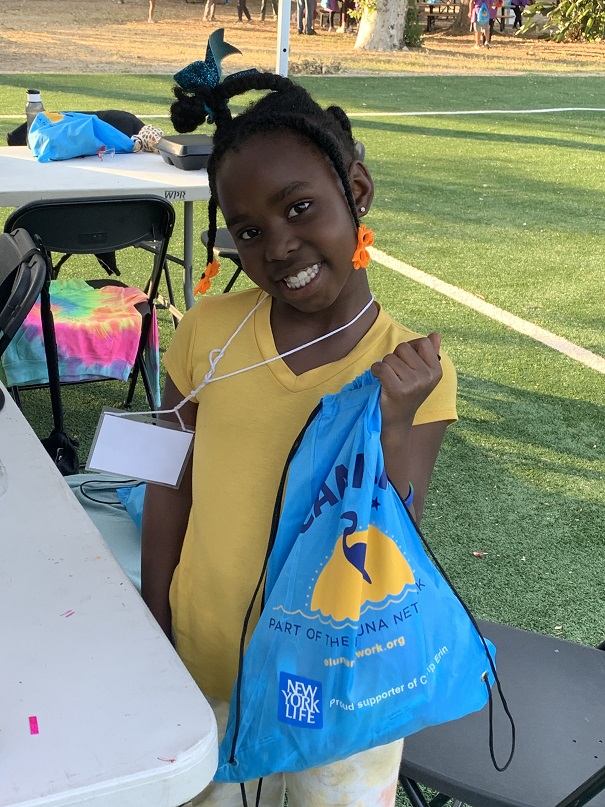
Kars4Kids: You also offer on-site grief support. Can you give us an overview of how this works and why it is a necessary part of what you do?
Julia Miele: When a school experiences the death of a student, teacher, parent, or other community member, OUR HOUSE provides time-limited grief support on-site, offering quick response services when tragedy strikes. For example, we conducted an on-site grief response at a school after a teenager accidentally shot himself and died. The school asked OUR HOUSE to run a special group for the teachers to express their own grief over the student’s death, helping them process the death and equipping them to support their grieving students. On-site grief responses are free for public schools and are offered on a sliding-scale for all private schools and businesses. In 2020, 16 local organizations received on-site grief responses online, serving 170 grievers, including 48 children.
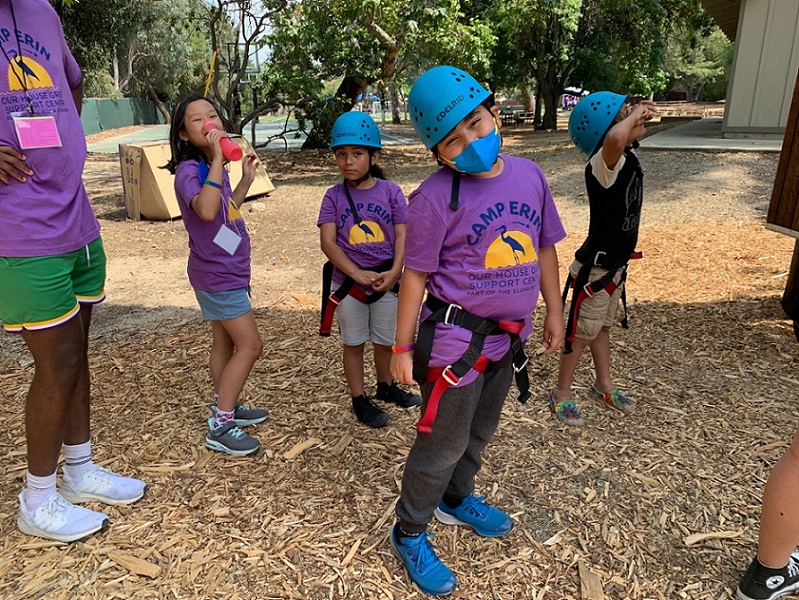
Kars4Kids: Tell us about Camp Erin. Who is it named for? What is it like?
Julia Miele: Camp Erin is named in memory of Erin Metcalf who died of cancer at age 17 and who was a friend of the camp’s founders Karen and Jamie Moyer. Erin’s wish was to help other children navigate through their grief. Camp Erin combines traditional camp activities with grief support, education and remembrance projects and ceremonies. Campers swim, navigate a rock wall and rope course, engage in arts and crafts, and enjoy other activities designed to encourage and promote healing. Camp Erin allows children a chance to share their thoughts, feelings, and memories about the person who died with their peers. They participate in memorial ceremonies as well as outdoor activities that allow them to enjoy the freedom of childhood.
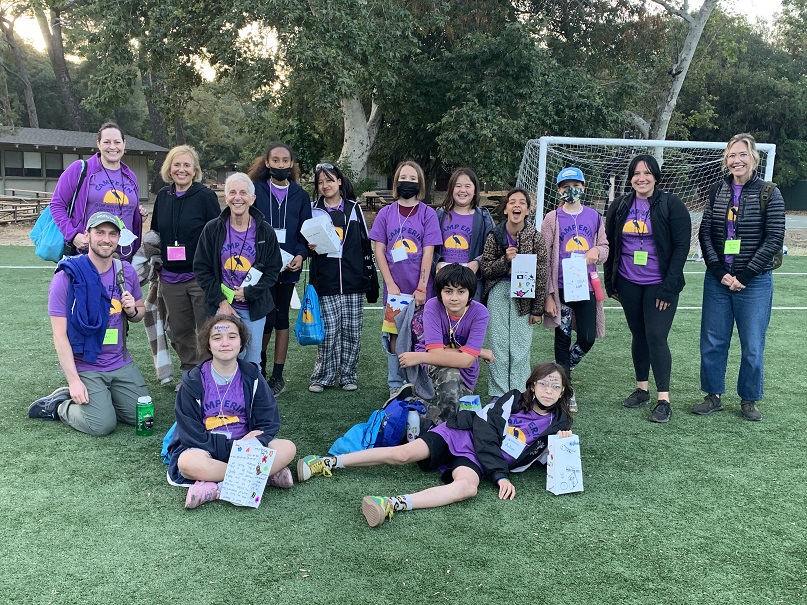
Kars4Kids: This sounds like an interesting event: “From OUR HOUSE to Yours – a Community Week of Wellness.” Can you tell us about it?
Julia Miele: This was a week-long virtual event we hosted on our website in 2020 as a replacement for our in-person Walk ‘n’ Run for Hope. Each day, we offered daily resources hosted by a different grief expert introducing different activities that encourage wellness, while inspiring hope and healing for grieving teens and adults. Some of the activities we offered were cooking lessons, meditation sessions, arts and crafts, writing workshops, and music videos.
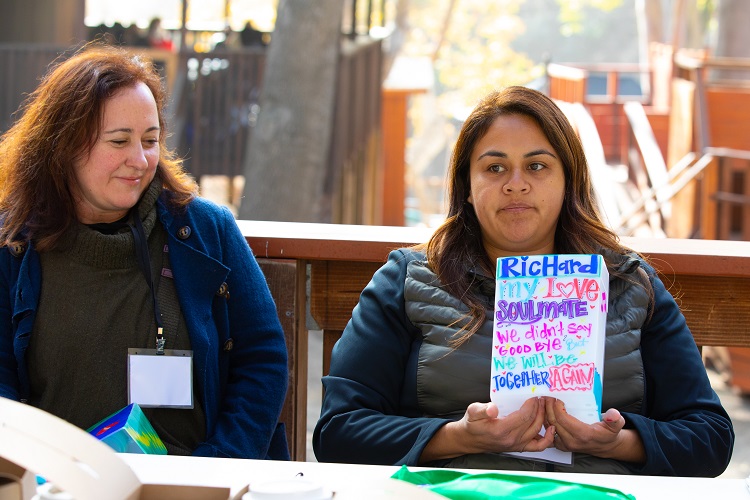
Kars4Kids: How did the pandemic affect your ability to serve those who need you?
Julia Miele: Following the COVID-19 pandemic, we reduced the 2020 budget by $663,451 or 23%, including a reduction in staff of five people, a hiring freeze on three open positions, and a decrease in individual staff salaries by 8-15%. Our annual large fundraising events, the Walk ‘n’ Run for Hope 5K and the House of Hope Gala, were both cancelled in 2020 and we haven’t been able to host our Walk ‘n’ Run since. We also converted all grief groups to online formats, re-trained all volunteers to lead online groups, and created new ways to engage with our community, from producing online wellness resources to delivering personalized activity supplies to children and teen group members. To date, 115 unique grief support groups for children, teens, and adults, in English and Spanish, have met remotely.
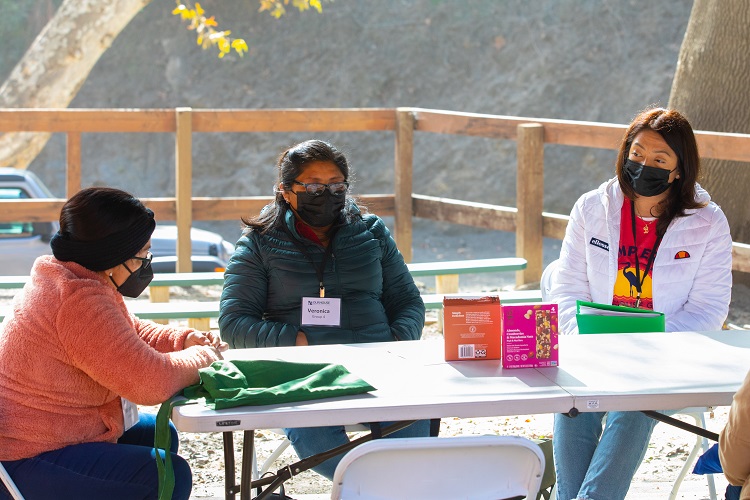
Kars4Kids: What’s next for OUR HOUSE Grief Support Center?
Julia Miele: Grief support groups are now back in person at our Woodland Hills and new West Los Angeles centers. We are thrilled to welcome home group members and volunteers! A new, online-only grief support program, informed by our pandemic response, will be launched in January 2023. This expansion will help many grievers with transportation, work, or childcare challenges access our services. A revamped In-House Program for children and teens will give young grievers better tools to navigate their grief, and their guardians will have an easier schedule to help balance after-school activities and transportation. Thanks to a new partnership with the Department of Mental Health, more Spanish-speaking grievers across Los Angeles County now have access to free grief education and support. Finally, we continue to advance our Justice, Equity, Diversity, and Inclusion goals with expert consultants which will help us improve the experience of our diverse community of grievers, volunteers, and staff.